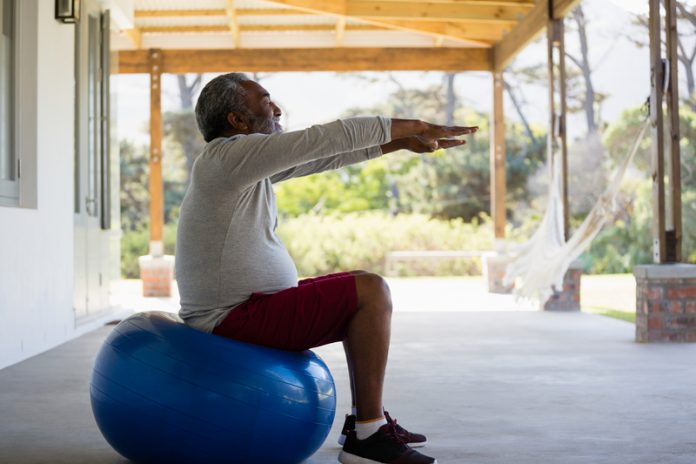Prof. Anna C. Whittaker from University of Birmingham’s School of Sport, Exercise & Rehabilitation Sciences looks at the need for ageing research in Europe
Current demographic trends indicate that by the year 2020, almost 1 in 5 of the European population will be aged 65 years or over. Although life expectancy is increasing by 2 years per decade, the period of life spent in good health (health span) is not keeping pace with lifespan. Most Europeans spend their last decade in poor health, making ageing research an urgent priority in Europe.
Consequently, there is a pressing need to understand how lifestyle factors can influence age-related changes. Research to gain this understanding will need to focus on gene level to society level to encompass the many impacts of lifestyle and how these effects interact to influence healthy ageing.
It is also crucial to develop and test interventions to ensure more older adults have a healthy later life. The Horizon 2020 funded Marie Curie-Sklodowska Innovative Training Network – PANINI is addressing these issues through focusing research training on two major interacting lifestyle factors, namely physical activity and nutrition.
Why are physical activity and nutrition important?
Physical activity and optimal nutrition can influence the function of a range of body systems, which interact in the maintenance of health via enhancing quality of life, mental abilities, and muscle mass, decreasing fat mass and modifying sarcopenia (loss of skeletal muscle mass and function).
However, data are sparse on energy intake and energy expenditure in less fit or frailer older populations. Consequently, nutritional and exercise requirements of elders to maintain physical and mental function are not fully understood, although the European Society for Clinical Nutrition and Metabolism have made evidence-based nutrition recommendations and the European College of Sport Science have adapted existing physical activity guidelines for older adults.
Who is PANINI?
PANINI is a research training network led by Prof. Anna Whittaker at the University of Birmingham and consists of leading academic and non-academic research institutions across Europe. Our partners are private sector companies working on physical activity or nutrition products, healthcare organisations, ageing charities and policy makers.
What will PANINI do?
- Stimulate collaborative ageing research across Europe from basic science to clinical intervention on physical activity and nutrition;
- Develop a standardised toolkit of best practice measures of physical activity and nutrition for use with older adults;
- Use the toolkit across PANINI projects to develop a shared dataset across different European ageing populations;
- Compare novel physical activity and nutritional interventions to improve healthy ageing and;
- Create a healthy ageing policy document with key stakeholders.
What will PANINI need to research?
To promote healthy ageing, it is important to understand the mechanisms underlying unhealthy ageing. Ageing is a complex process and age-related changes in physiological systems often interact to influence our function. For example, increased fat mass but declining muscle mass and function, weight loss, fatigue, weakness, slow walking speed and physical inactivity are often overlapping changes with age and combine to result in frailty and poorer well-being.
Consequently, early detection of frailty or the risk of frailty through multi-disciplinary assessment of a range of relevant factors and sensitive biomarkers and mitigation through targeted interventions is essential. Physical activity and nutrition have been suggested as primary drivers of health and physical function in later life.
PANINI is covering a range of topics which interact to inform our knowledge of the mechanisms of lifestyle effects on healthy ageing and how to promote healthy ageing across a range of outcomes through lifestyle interventions. These topics encompass:
- Assessment of data on ageing, extending from mid-adulthood to old age, on physical functioning, physical activity and nutrition, as well as effects on quality of life and mental abilities;
- Studying the impact of sedentary behaviour on physical function and health in older adults, including testing an intervention to reduce sedentary time and improve outcomes post-surgery;
- Testing the feasibility of seated resistance exercise interventions in very frail dependent older adults such as those in care homes or hospital, to see effects on physical function and health;
- Developing a less-biased means of assessment of dietary intake and the factors influencing dietary choice in older adults from ethnic minorities;
- Studying dysregulation of muscle mitochondrial function associated with ageing and various diseases via mathematical modelling of metabolism across different age groups and as a measure of different interventions within PANINI;
- Understanding the impact of the Mediterranean diet on physical and psychological well-being and mental abilities including memory, attention and learning, as well as the speed of change in these parameters in ageing;
- Investigating changes in sex steroids in ageing, particularly the menopause and their impact on muscle function, level of physical activity and psychological well-being;
- Testing the impact of individually-tailored interventions which promote a pro-physical activity and social environment prior to and during periods of surgery in older adults to aid recuperation and slow progression to frailty;
- Examining nutrition effects on muscle mass and function in older adults to understand the contributions of dietary intake and malnutrition on the decline of muscle function observed in ageing;
- Discovering biomarkers of ageing, including inherited reversible changes in gene structure and function, called epigenetics, which can determine our biological ageing and health and testing if they also relate to physical function and;
- Measuring the impact of genetic background on an individual’s ageing and understanding how genetic background affects our nutritional choices and frailty risk.
How will we learn more about ageing from the PANINI project?
A key target of PANINI is to develop next-generation researchers able to communicate healthy ageing research across disciplines, which is essential for ‘whole person’ physical activity and nutrition research. The key impact will be through the widely disseminated advances in understanding the processes that contribute to healthy ageing and the factors and mechanisms underpinning successful interventions.
The key outputs will be a PANINI toolkit and shared dataset; public engagement activities and academic dissemination; and a health policy statement in collaboration with stakeholders including older adults themselves, ageing charities and policy makers.
This project has received funding from the European Union’s Horizon 2020 research and innovation programme under the Marie Skłodowska-Curie grant agreement No 675003. www.birmingham.ac.uk/panini
Please note: this is a commercial profile
Professor Anna C. Whittaker
Professor of Behavioural Medicine

School of Sport, Exercise & Rehabilitation Sciences, University of Birmingham
Tel: +44 (0)121 414 4398
www.birmingham.ac.uk/staff/profiles/
sportex/phillips-anna.aspx











